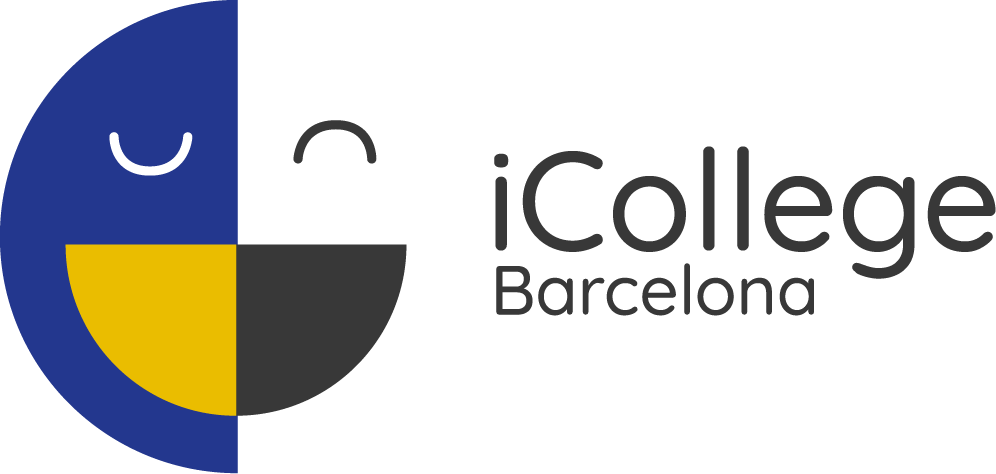The world is changing at an unprecedented pace, and education is evolving right alongside it. As we advance further into the 21st century, the future of education is being shaped by emerging technologies, shifting societal needs, and a growing awareness that learning must be more adaptable, inclusive, and lifelong.
Traditional classrooms are being reimagined as dynamic environments that foster creativity, critical thinking, and global citizenship. Whether it is AI-assisted learning, immersive virtual environments, or international collaboration, new innovations are reshaping not just how we teach, but how we learn.
Institutions at the forefront of this transformation—such as iCollege Barcelona—demonstrate how combining tradition with technology can lead to a more holistic and future-ready education. Through their international approach and commitment to innovation, they are helping students thrive in a rapidly changing world.
Rethinking the Role of Education
In the past, education was often viewed as a straight path from school to university and then to employment. Today, this linear model no longer suits the demands of the modern world. Learning has become a continuous, evolving process that extends well beyond the classroom.
The future of education prioritises flexibility, individualisation, and skills development over memorisation. Students must be equipped not only with academic knowledge but also with the ability to adapt, solve problems, and collaborate across cultures and disciplines.
Institutions such as iCollege Barcelona’s International High Schoolare leading this change. They empower students to become independent thinkers and lifelong learners, ready to face the challenges of a complex global landscape.
1. Personalised and Adaptive Learning
A major trend shaping the future is the shift towards personalised learning. Instead of applying the same curriculum to every student, personalised learning tailors content, pace, and delivery methods to meet individual needs.
Key features include:
- Data-driven platforms that assess performance and adjust content in real time
- Adaptive learning software that recommends activities based on comprehension
- Teachers as facilitators, guiding students through their personalised learning journeys
This method ensures all learners can progress at their own speed and benefit from targeted support or enrichment. When paired with innovative teaching methods, personalised learning enhances both student engagement and academic outcomes.
2. Blended and Hybrid Learning Models
The COVID-19 pandemic accelerated the widespread adoption of blended learning, combining traditional classroom teaching with online components.
Core benefits of hybrid models:
- Greater flexibility for students to manage their learning schedules
- Enhanced accessibility for pupils with varied learning needs or geographic limitations
- Integration of interactive content such as videos, quizzes, and discussion boards
Blended learning is no longer just a temporary solution—it has become a cornerstone of modern pedagogy. At institutions like iCollege Barcelona, hybrid models are embedded within the curriculum, giving students the flexibility to balance academics with personal development and real-world experience.
3. EdTech and Artificial Intelligence
The integration of educational technology (EdTech)—especially tools powered by Artificial Intelligence (AI)—is revolutionising the learning experience.
Popular AI innovations include:
- Chatbots to answer student queries instantly
- Virtual tutors for individual academic support
- Predictive analytics to identify learning gaps early
- Language apps with real-time feedback and speech recognition
While AI cannot replace human educators, it offers powerful tools to enhance teaching effectiveness, personalise content, and automate routine tasks—allowing teachers to focus on what matters most: mentoring and inspiring students.
4. Gamification and Game-Based Learning
Gamification—the use of game elements in non-game settings—is another rising trend in education. Leaderboards, point systems, and reward badges can significantly boost student motivation.
Game-based learning, meanwhile, uses actual games and simulations to teach concepts. It fosters:
- Collaboration and team-building
- Critical thinking and problem-solving
- Higher engagement and better retention
Subjects like mathematics, science, and history are increasingly being taught through interactive platforms that turn learning into an engaging and memorable experience.
5. Lifelong Learning and Microcredentials
In today’s ever-changing job market, lifelong learning has become essential. Rather than stopping after formal education, individuals are encouraged to upskill and reskill throughout their lives.
One of the most accessible approaches is through microcredentials—short, focused courses that allow learners to build specific skills or competencies.
Benefits of lifelong learning include:
- Career flexibility
- Continuous personal development
- Customisable learning pathways
Forward-thinking institutions and employers now recognise stackable credentials, which can be combined into comprehensive learning portfolios, offering alternatives to traditional degrees.
6. Global Classrooms and Cross-Cultural Learning
Modern education is increasingly international. Through technology, students can now collaborate with peers across the globe, gaining exposure to different cultures, perspectives, and ways of thinking.
Virtual exchange programmes, online study groups, and global projects cultivate intercultural communication skills and global awareness.
For example, the A-Levels Barcelona Programmenot only prepares students academically but also broadens their understanding of global education systems—helping them thrive in universities worldwide.
7. Project-Based and Experiential Learning
Project-based learning (PBL) and experiential learning focus on applying knowledge to real-world challenges. Instead of rote learning, students engage in activities such as:
- Building prototypes
- Conducting scientific investigations
- Planning community initiatives
- Creating digital media projects
This approach promotes critical thinking, collaboration, and long-term knowledge retention, all of which are vital in preparing students for life beyond school.
8. Focus on Mental Health and Wellbeing
As academic pressure rises, schools are placing greater emphasis on student wellbeing. A healthy mind is essential for effective learning and personal development.
Initiatives often include:
- Access to school counsellors and mental health support
- Programmes that build resilience, emotional intelligence, and mindfulness
- Wellness-focused extracurriculars such as yoga, meditation, or art therapy
Progressive schools like iCollege Barcelona are creating spaces where students feel safe, supported, and empowered to reach their full potential—not just academically, but emotionally and socially.
Their diverse schedule of events and student development activities provides holistic support that nurtures both intellect and wellbeing.
9. Sustainable and Ethical Education
As awareness of environmental and social issues grows, sustainability and ethics are becoming essential components of education.
Themes commonly covered include:
- Climate change education
- Social justice and equity
- Sustainable design and the circular economy
Students are encouraged to take part in projects that promote environmental stewardship and social responsibility—preparing them to become conscientious global citizens.
10. Learning Analytics and Data-Driven Instruction
Learning analytics uses data to improve both teaching and student outcomes. Through real-time monitoring of engagement, performance, and progress, educators can:
- Spot struggling students early
- Adapt content to individual learning styles
- Measure the effectiveness of teaching strategies
By making informed decisions backed by data, schools can deliver more targeted, impactful education and create more equitable learning environments.
Final Thoughts: The Future of Education is Here
The future of education is not coming—it is already here. It challenges us to move beyond outdated models and embrace a learning culture that is innovative, inclusive, and adaptive.
Educators, parents, and students must work together to build this new vision. Institutions like iCollege Barcelona are showing how a future-ready approach can empower learners to succeed academically, socially, and personally.
To find out how these trends are being implemented or to explore forward-thinking academic programmes, visit iCollege Barcelona’s contact page. The classroom is no longer a place—it is a pathway to possibility.
FAQs: The Future of Education
What are the biggest trends shaping the future of education?
Key trends include personalised learning, blended learning models, artificial intelligence, gamification, global collaboration, and lifelong learning.
How can parents support future-ready learning at home?
Parents can provide access to learning tools, foster curiosity, support emotional wellbeing, and stay engaged with school activities.
Will teachers be replaced by AI?
No. While AI can support and enhance teaching, the role of educators as mentors and role models remains irreplaceable.
What is the value of project-based learning?
It helps students develop practical skills, apply knowledge to real-world contexts, and encourages collaboration and independent thinking.
Why is lifelong learning important today?
As industries evolve, lifelong learning enables individuals to stay relevant, adapt to new challenges, and pursue personal and professional growth.



